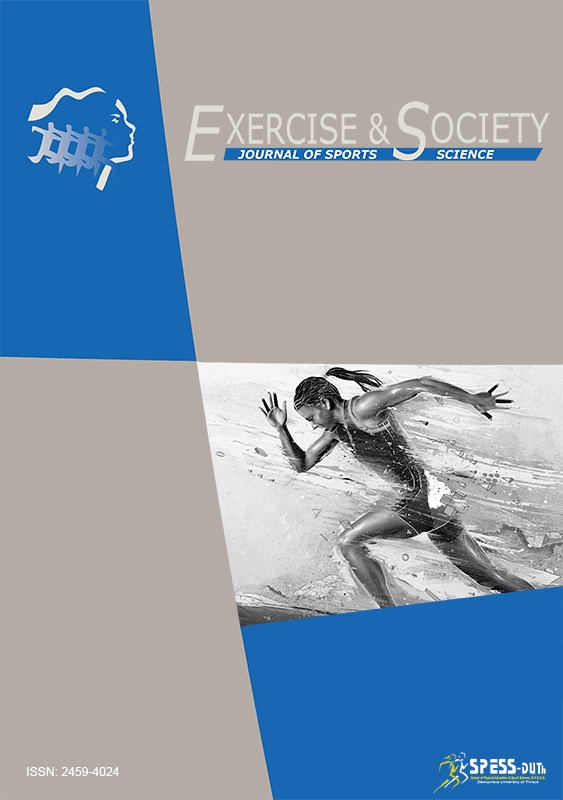The effect of professional development workshops in teaching elementary physical education
Abstract
The purpose of the study was to examine how professional development workshops affect the teaching of elementary physical education. Thirty two classroom teachers from public elementary schools in Nicosia participated in this study. Teachers were required to submit their sport education unit and lesson plans they prepared and teach two lessons, which were videotaped. The Sport Education Observational Instrument was used to code teacher sport education pedagogical behavior. The author of the study and a reliability coder independently coded: a) the unit and lesson plans used in the Sport Education programs, and b) the implementation of their program. The results of this study suggest that to design more effective professional development workshops, requires extensive prior knowledge of the contextual barriers that exist within the school setting. Although the workshops allowed the teachers to see the value of the content, it did not provide them the skills necessary to effectively implement the strategy within the school setting. These findings highlight the importance of providing resources to help teachers integrate new curricula and instructional skills into their existing contexts, such as the use of authentic contexts for training and providing a mentorship model of support mechanisms provided at the school site.References
Armour, Κ. Μ & Yelling, Μ. Ρ. (2004). Continuing professional development for experienced physical education teachers: towards effective provision. Sport, Education & Society, 9, 95-114.
Constantinides, P., Montalvo, R. & Silverman, S. (2013). Τeaching processes in elementary physical education classes taught by specialists and nonspecialists. Teaching and Teacher Education, 36, 68-76.
Desimone, L., Porter, A. C., Garet, M., Yoon, K. S. & Birman, B. (2002). Does professional development change teachers’ instruction? Results from a three-year study. Educational Evaluation and Policy Analysis, 24, 81-112.
Garet, M. S., Porter, A. C., Desimone, L., Birman, B. F. & Yoon, K. S. (2001). What makes professional development effective? Results from a national sample of teachers. American Educational Research Journal, 38, 915-945.
Rovegno, I. (1994). Teaching within a curricular zone of safety: school culture and the situated nature of student teachers' pedagogical content knowledge. Research Quarterly for Exercise and Sport, 65, 269-279.
Siedentop, D. (1994). Sport Education. Quality PE through Positive Sport Experiences. Champaign: Human Kinetics.
Siedentop, D. Hastie, P. & Van Der Mars, H. (2004). Complete Guide to Sport Education. Champaign, IL: Human Kinetics.
Tolbert, M. (2001). Professional Development for Adult Education Instructors. Washington: National Institute for Literacy; http://www.nifl.gov/.nifl/policy/development.pdf
Ward, P. & Doutis, P. (1999). Toward a consolidation of the knowledge base for reform in physical education. Journal of Teaching in Physical Education, 18, 382-402.
Downloads
Published
How to Cite
Issue
Section
License
Authors who publish with this journal agree to the following terms:
a. Authors retain copyright and grant the journal right of first publication with the work simultaneously licensed under a Creative Commons Attribution License that allows others to share the work with an acknowledgement of the work's authorship and initial publication in this journal.
b. Authors are able to enter into separate, additional contractual arrangements for the non-exclusive distribution of the journal's published version of the work (e.g., post it to an institutional repository or publish it in a book), with an acknowledgement of its initial publication in this journal.
c. Authors are permitted and encouraged to post their work online (e.g., in institutional repositories or on their website) prior to and during the submission process, as it can lead to productive exchanges, as well as earlier and greater citation of published work (See The Effect of Open Access).


